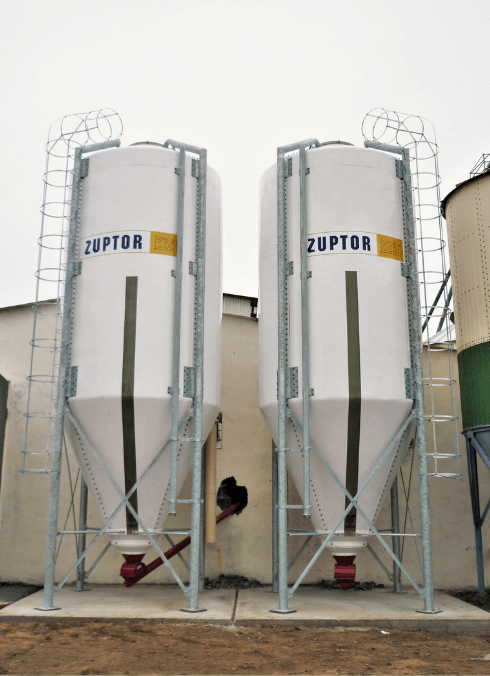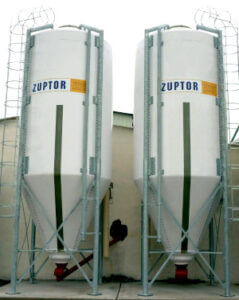
Advantages of fibreglass silos
Silos are used for storing various types of bulk materials and powders. The most common are feed, cereals and middlings. Traditionally, they are manufactured from steel, but this material has many disadvantages in such an application. Therefore, fibreglass silos offer an alternative. Find out what their advantages are.
Using fibreglass instead of steel
Fibreglass is a material created from thin strands drawn from molten and stretched glass, which are then woven together and surrounded by resin. It is a more expensive material than the sheet metal used for silos, but compensates for this with many advantages.
Above all, the resulting structure weighs much less while retaining its high strength characteristics. It requires no maintenance during use and can have a service life of up to 30 years. Unlike steel silos, fibreglass silos show high resistance to temperature differences and additionally reduce condensation.
Ensuring adequate ventilation reduces the incidence of mould, animal diseases and spoilage of contents. The structure is free of corrosion.

ZUPTOR fibreglass silos
High-quality silos for storing grain, feed and all kinds of middlings.
ZUPTOR silos are not only of high quality but also comfortable to use. Our fibreglass silos are characterised by a very long service life - up to 30 years.
We invite you to learn more about the product: Fibreglass silos
Convenience of use
The walls are completely smooth, so the discharge is fast, even and does not result in material nesting. It is therefore not necessary to clean the remaining deposits each time.
This also affects the capacity, which is slightly higher than when using corrugated sheet metal. Unloading can be carried out by means of a gate or a fodder train. In addition, scales can be fitted. Loading is carried out pneumatically. Compared to traditional silos, the fibreglass allows easy checking of the filling level via a transparent strip.
Depending on the size of the structure, the silos we produce are set up on three or four legs.
We offer silos with capacities:
- 6 m3 (height 4.40 m)
- 10 m3 (height 5.40 m)
- 15 m3 (height 6.40 m)
- 20 m3 (height 7.50 m)
- 25 m3 (height 8.00 m)
- 40 m3 (height 8.40 m)
- 52 m3 (height 9.80 m)
The advantages also include a high level of protection against mechanical damage, which results in a better level of tightness and airtightness. The assembly of the ordered silos is very fast - usually taking just one day.
